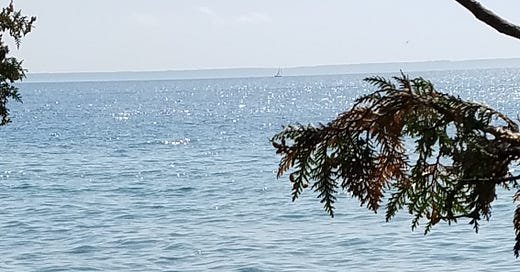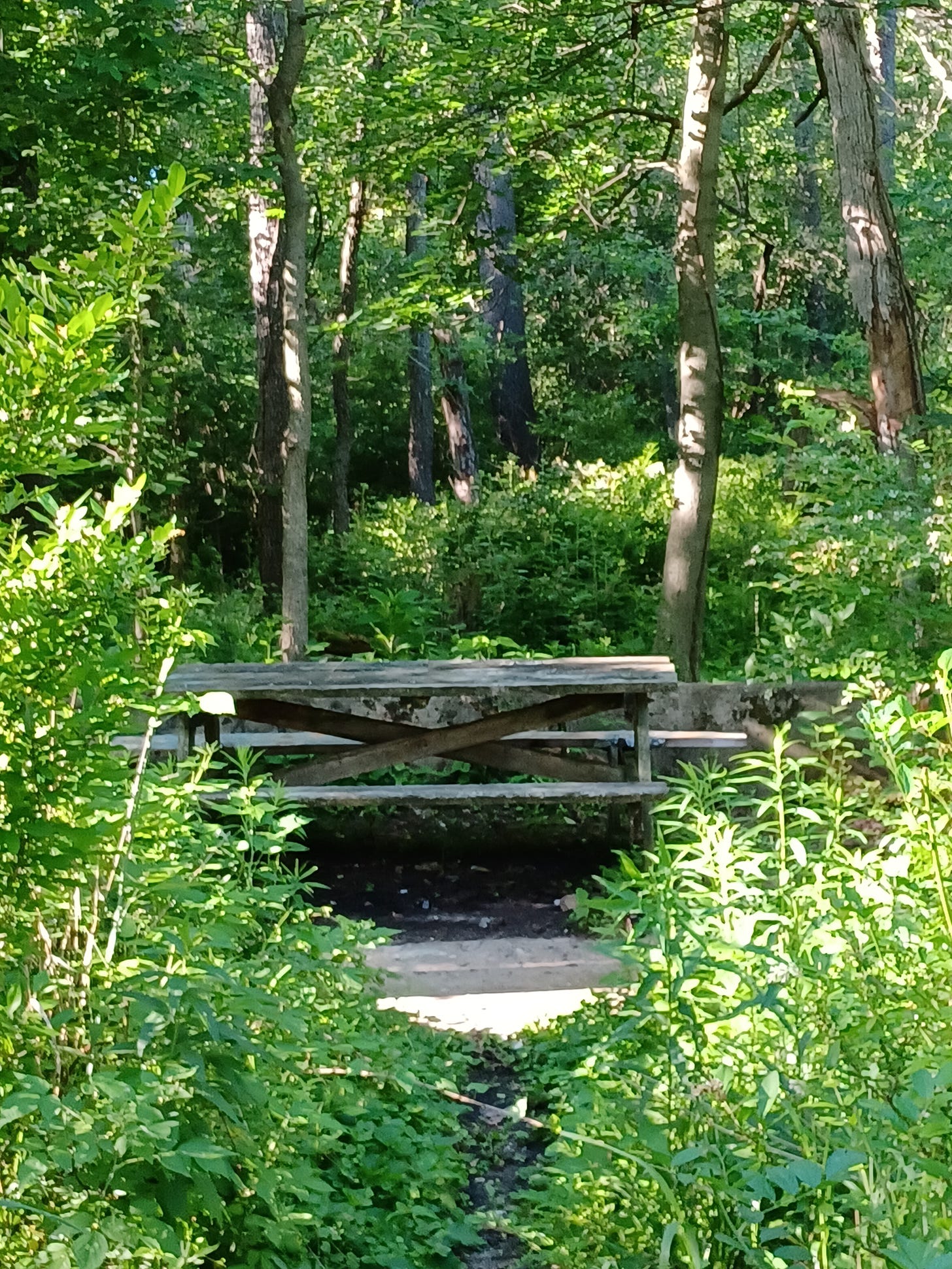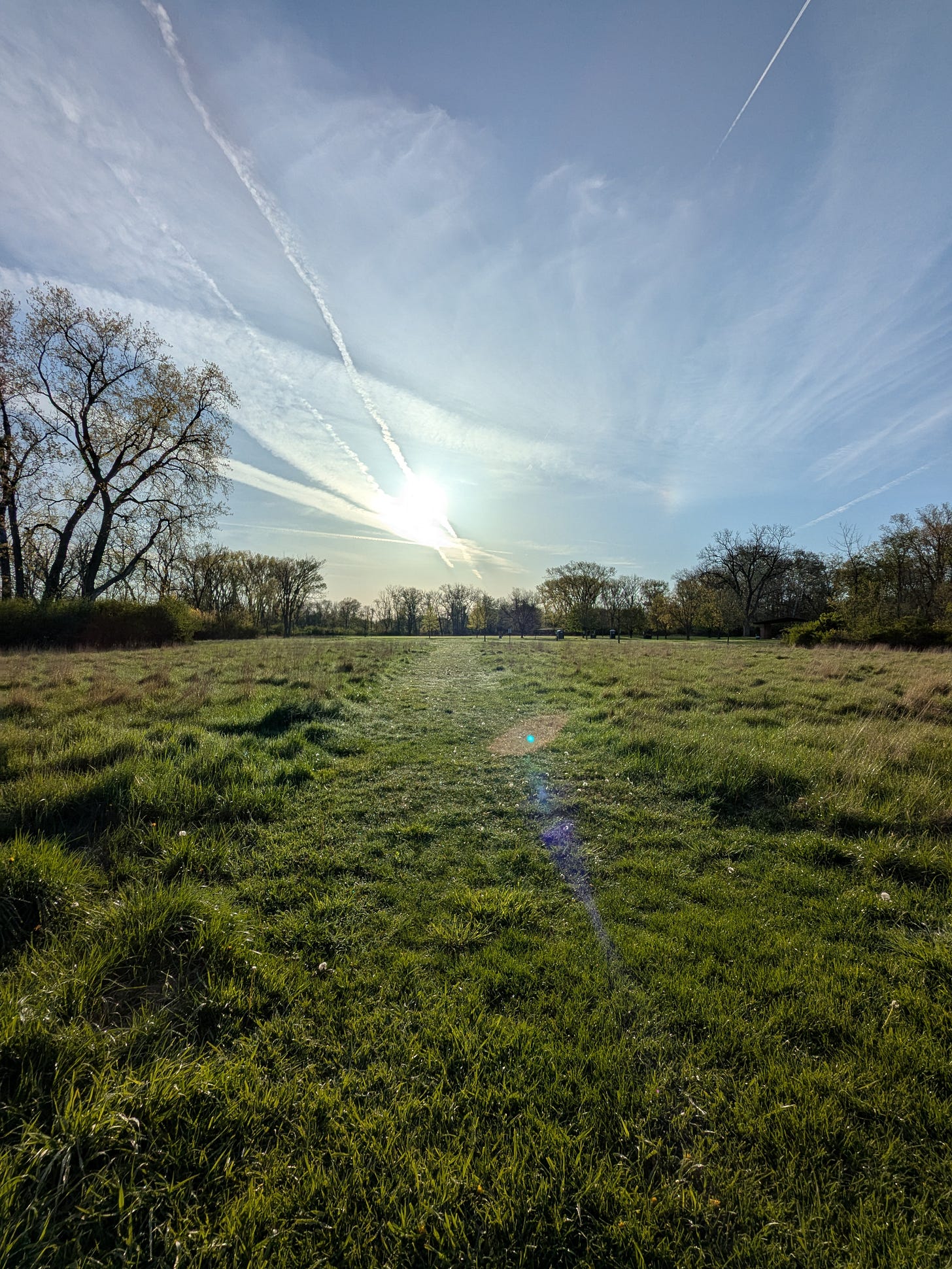My neighbor’s house sits very close to me. So close, in fact, that our chimneys are about ten feet apart with only a flagstone path separating them. Our houses, unique to our single lane tree-lined street, mirror one another. We share a walkway leading to our front doors where the path forks, one leading to her house and one to mine.
On a recent bright spring morning, she knocked gently on my front door. I opened it to a slender hand reaching out with a single key looped through a short chain dangling from her finger. “I’m moving. Here’s your house key back,” she said, smoothing her fine white bobbed hair. I remembered when we first exchanged keys—“just in case,” we said together, laughing at the thought.
I knew the day would come as she had been talking to me over recent years about moving to assisted living. Back then, I had brushed her comment off as getting ahead of herself. She was still working a few hours a week, and from what I could tell, doing just fine with her ADLs (activities of daily living).
But she knew something I didn’t. She was losing her memory—quickly.
Though occasionally she’d repeat things she had previously told me, I thought little of it. Until that morning when it all made sense and she handed back my key. It was real. She was moving to a place where she needed to be.
Until now, I’ve never really given much thought to a next step in someone else’s life, let alone my own. I’ve always been the go-with-the-flow kind of person, trying not to get ahead of myself. I deal with things if and when they happen. But upon my neighbor’s move, my confidence in considering what would come with my aging self was splintered.
It’s when a life transition happens to someone you’ve known for over twenty years—someone whose rhythms have become familiar, whose daughters and grandchildren you’ve come to know through their storytelling. You think of the little things: giving them your plumber’s number when the sewer pipe needing clearing from tree roots, reassuring them that the gas station up the street would take care of their car’s dead battery. The everyday exchanges, once so simple, became a part of a larger picture.
Others’ life changes became a reflection of me.
Her loss of independence and memory echoed, reverberating with my own fears—that one day my thinking would not be that I was getting ahead of myself, but that the consequences of aging had caught up with me. It was a reminder of my vulnerabilities, that the life I’ve shaped and managed and the person I’ve come to know so well would become misshapen, and unmanageable. And that realization settled deep in my heart.
It happened fast after her announcement.
First the piano was moved out. I watched from my dining-room window how the bulk of four men surrounded the bulk of it on a flatbed on wheels and pushed it on a bumpy ride down the walkway. The notes, once reverberating throughout her house, trailed behind.
Her front door remained opened.
The next day was the moving truck. The next day, a junk recycling truck.
Her front door appeared to always be open.
And then the emptied back porch screen door slammed for a last time.
I stared out to her front yard, the “for sale” sign the only fixture remaining. But so was the dust, the rusted hinges, the porch screen stiff with age and loose with the pulls and pushes of life. Shades and sheers covered the kitchen and dining- room windows, bringing to close her life there.
I thought of the life she had made for herself and all who were a part of it who had passed through her front door. What remains has seeped into the walls, into the house’s bones where stories are archived and memories of our friendship linger. They will keep her presence there long after she has gone.
With the dust stirred and footprints faded into the carpet, only the ghosts remained.
The house spoke: you were here
I think about how we see ourselves reflected in the lives of others, how we grow to love the spaces we make our own—the quiet solitude of a porch in the early morning, doing the crossword puzzle or reading a book; the joy of summer gatherings with friends, the sliding door left open for fresh air, laughter, and animated conversation; the kindness of baking cookies and bringing a plate next door in thanks for a shoveled sidewalk.
And then a time will come to make room for our own ghosts.
I went to the forest the next morning. I walked among oaks, and maples, cottonwoods, and honeysuckle. Their mighty trunks soared not in years, but in decades, weathering storms. They’ve sheltered birds and raptors and eagles and squirrels; provided treehouses for little boys and girls, cooled our overheated spaces, cleaned our air. They give unconditionally to us and to the earth.
The trees have stories to tell, and I went to see them to tell them mine. I told the trees of my friend of many years, who liked to eat ice cream for dinner, and to sit on her back porch and be among you while reading a novel, who worked a few hours a week so she would not be lonely, who enjoyed filling her window boxes with pink geraniums each spring, who never pulled a seedling of yours born from an acorn popping from a large bed of pachysandra that filled her front yard.
My thoughts were heavy as I grieved for the woman in preppy clothes that suited her petite frame—my neighbor, my friend. We shared stories of a time when neighbors felt like family, when you knew who lived next door. We laughed at ourselves, and listened when the conversation called for it. I will miss her—our friendship, her presence, my neighbor in the white house with the black shutters where she lived
And that is why I went to the forest—to be with the trees that know so much, to seek their wisdom and meaning in the face of a life in transition. I went to pray for the grace of God to help me navigate the changes that will surely come. I sought connection among the flora and fauna that nourish the soul, lift the spirit, and mend the heart.
It’s in moments like these that I’m reminded of strength—of standing tall even when we feel small. That the sweet scent of lilacs never truly fades. That the robins’ songs and the bluejays’ squawks will always call us into conversation. I’m reminded to live in, and for, the present moment, and to draw on the lessons I’ve learned to guide me through whatever comes in my years ahead.
The decades old house will be turned over to new inhabitants where the life cycle of a house will continue.
A life existing inside still lingering among the ghosts that travel the rooms.







A lovely piece.Thank you!
Beautifully pondered, Nancy.